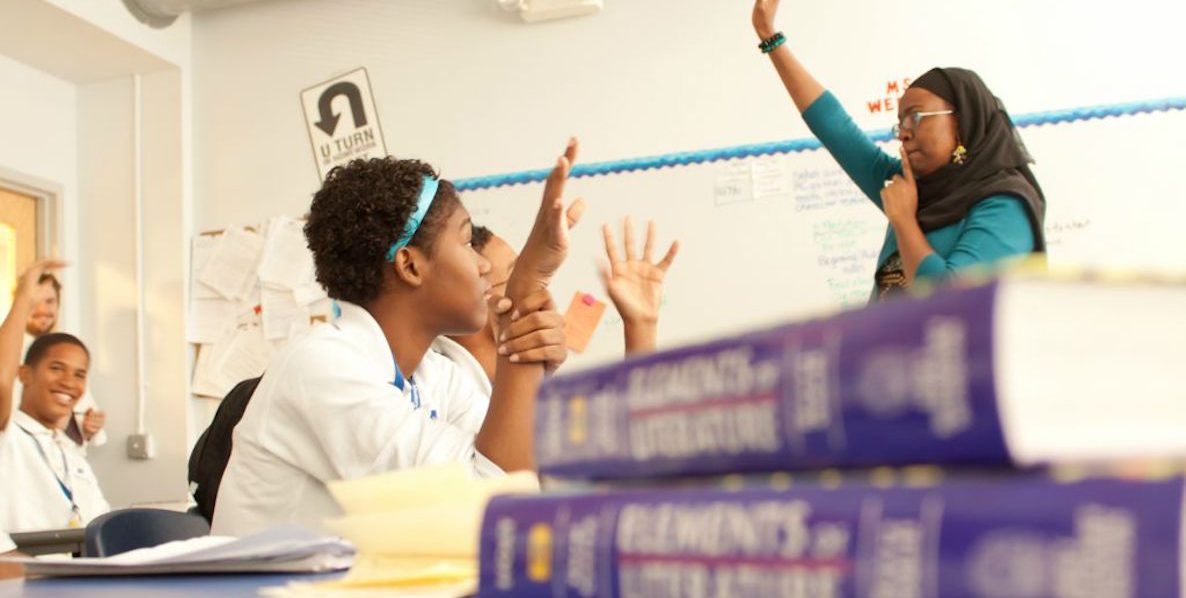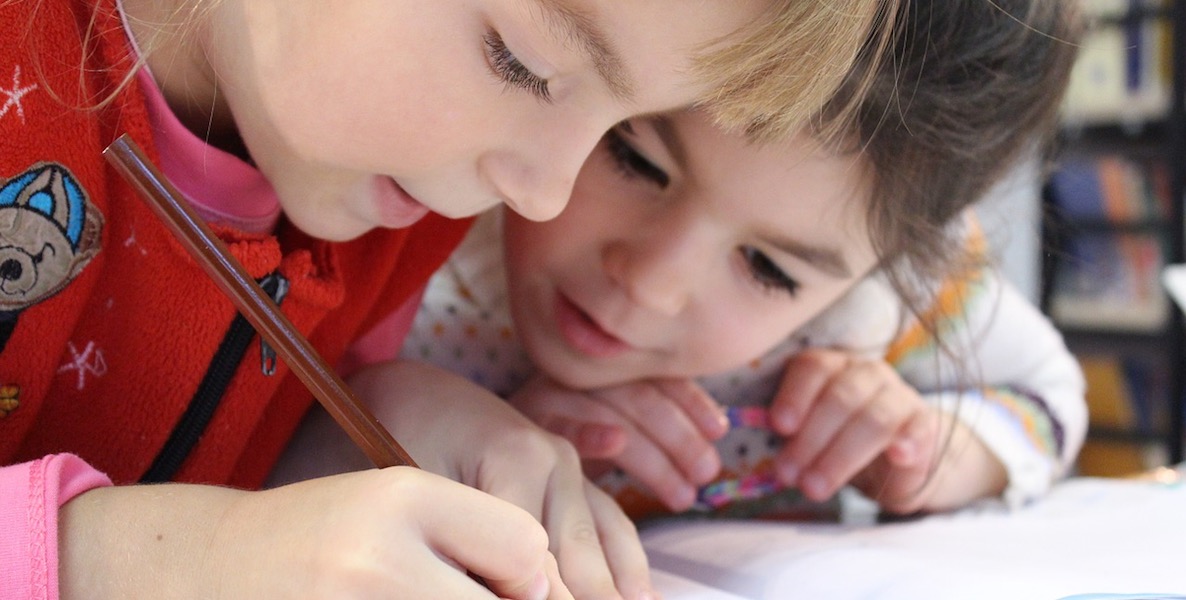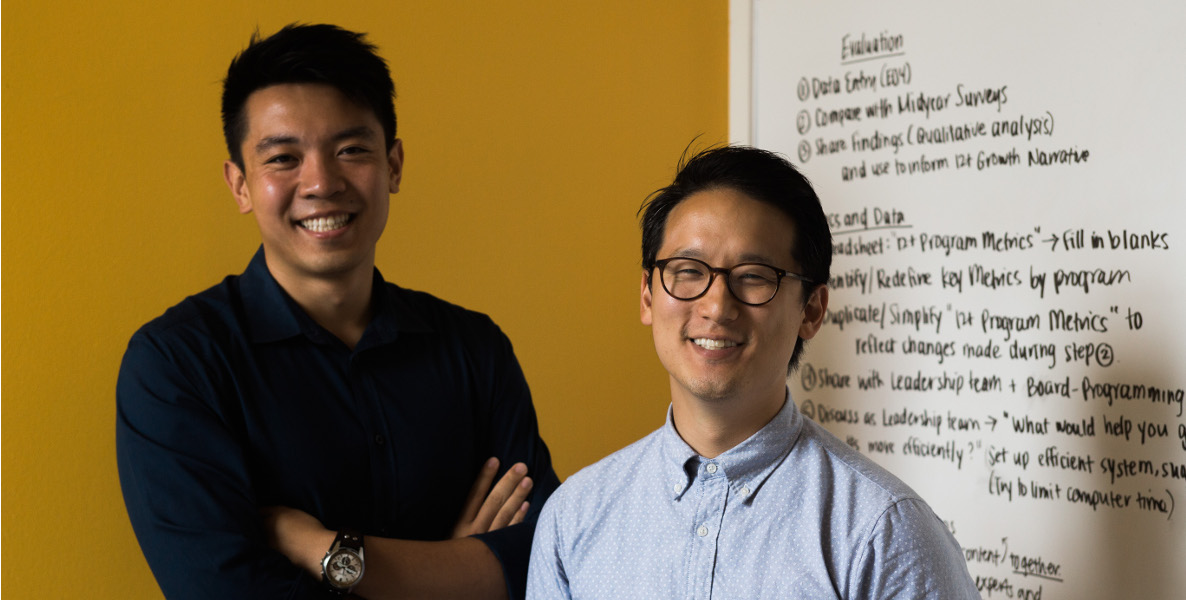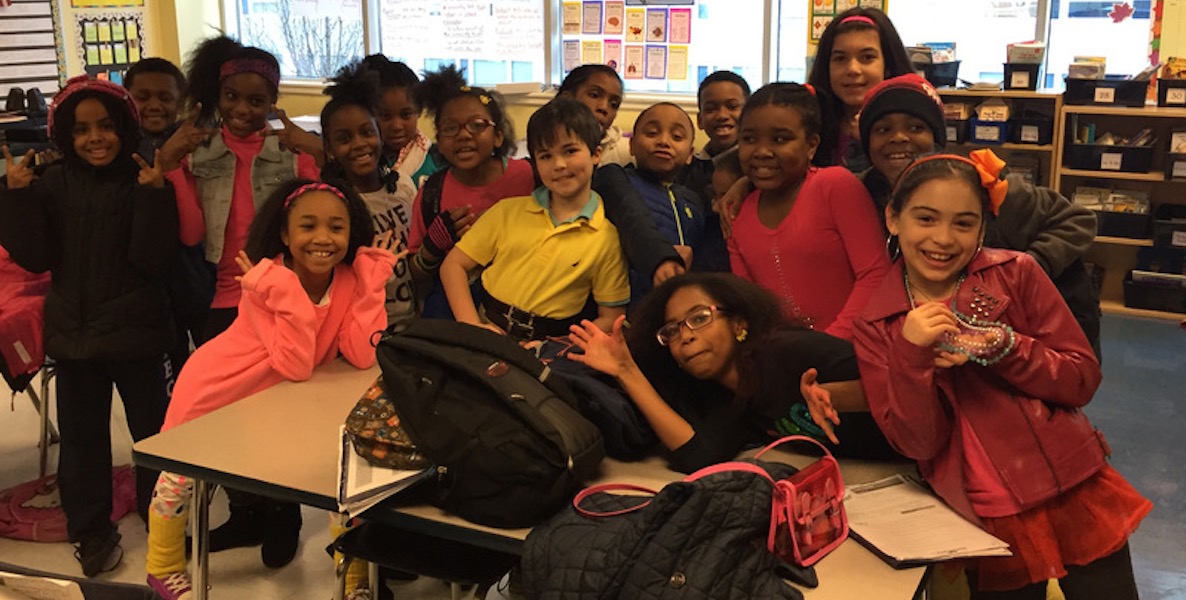Huzzah! Parents everywhere, take heed: The last gasp of summer vacation is finally upon us. The first day for most Philadelphia public school students—Wednesday—beckons like a Pokemon awaiting capture around the corner.
It will be, for many, a relief. Which begs the question: Why so late, Philly?
Several charter schools, including all of Mastery, opened their doors to upwards of 15,000 students in August. That means that while the rest of the city is still getting used to stumbling awake early, those students have already started learning. At Russell Byers Charter School, the first day of classes was on August 22 this year, initiating what founder Laurada Byers considers a “soft opening” that allows for the weeks it can take for students and teachers to hit their stride—shaking off summer, learning the rules of a new classroom, getting used to bus schedules, collecting textbooks and school supplies. By the time Labor Day comes around, Byers says her students and staff are ready to learn.
![]() “My sense philosophically is, it takes a while to get the sand out of your brain, and by having some time in August you’re ironing out all the kinks,” says Byers. “Nothing of real import happens those first several days. We get a big percentage of that adjustment stuff done before Labor Day even happens.”
“My sense philosophically is, it takes a while to get the sand out of your brain, and by having some time in August you’re ironing out all the kinks,” says Byers. “Nothing of real import happens those first several days. We get a big percentage of that adjustment stuff done before Labor Day even happens.”
By that surely sound reasoning, most public school students in Philly won’t really start learning until almost October. That seems pretty silly—especially considering the post-Labor Day start is more a matter of agreed-upon convention than academic scholarship. The common nine month school schedule is a vestige of the early 20th Century, when our current schooling system was implemented nationwide. Before then, schedules varied by the needs of the communities, according to Kenneth Gold, a Staten Island College historian and author of School’s In: The History of Summer Education in American Public Schools. Gold notes that in rural areas, school used to close in early spring and early fall, when children were needed to help out on the farms. It was cities like New York—which wealthy and middle class families would flee in favor of the seashore before the advent of air conditioning—that started what we know of as summer vacation. Eventually, the nation adopted our standard 180 day school schedule as a compromise.
![]() But that may no longer fit what we know about students and learning, particularly in cities like Philadelphia. Underprivileged children experience what educators call the “summer slide,” losing one to three months of learning compared to their middle class and wealthy peers, who often spend summers in skills camps—Robotics! Minecraft!—that typically cost hundreds of dollars a week. That slide, year after year, increases and then cements the learning gap between the haves and have-nots. And it makes teachers’ jobs harder, particularly in the fall.
But that may no longer fit what we know about students and learning, particularly in cities like Philadelphia. Underprivileged children experience what educators call the “summer slide,” losing one to three months of learning compared to their middle class and wealthy peers, who often spend summers in skills camps—Robotics! Minecraft!—that typically cost hundreds of dollars a week. That slide, year after year, increases and then cements the learning gap between the haves and have-nots. And it makes teachers’ jobs harder, particularly in the fall.
“There is an empirical argument for making summer shorter,” says Maia Cucchiara, Temple University professor of urban education. “There’s a ton of research about the summer setback, especially for low-income kids, because their parents can’t do all the enriching things that middle class kids can get. More school, especially if it’s high quality, is better for kids.”
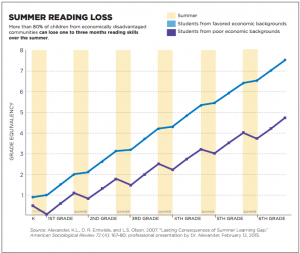
Plus, schools provide more than education these days. They are where thousands of children get breakfast and lunch every weekday; where they have the constancy of caring adults during the day, when many parents are working; where they are socializing in an environment set up to teach them, not lead them astray. And there’s another head-scratcher in Philly: Parks and recreation centers offer relatively low-cost summer camps, some with free meals and snacks. But those camps start after July 4th, and end in early August—leaving a couple weeks before and three weeks after of time to fill, meals to provide and childcare to scramble for.
“If you assume your customers are parents and students, you want to make all this fit together for them, especially in the city,” says Byers, 96 percent of whose students qualify for free or reduced lunch. “For our customers, that’s an issue.”
![]() Around the region and country, schools have started moving up their start dates; some, including Atlanta, Phoenix, Oklahoma City and Indianapolis as early as the first week in August. In Los Angeles County, where thousands of students started back on August 16th, administrators said the extra two weeks allow students more time to prepare for standardized tests in the spring, and lets them end their first semester before the breather of winter break—which is also slightly longer to let students make up coursework they may have missed. Other districts, like those in Maryland, are considering a year that is not longer, just different: Starting before Labor Day and ending school at Memorial Day instead, since learning often drops off at the end of the year.
Around the region and country, schools have started moving up their start dates; some, including Atlanta, Phoenix, Oklahoma City and Indianapolis as early as the first week in August. In Los Angeles County, where thousands of students started back on August 16th, administrators said the extra two weeks allow students more time to prepare for standardized tests in the spring, and lets them end their first semester before the breather of winter break—which is also slightly longer to let students make up coursework they may have missed. Other districts, like those in Maryland, are considering a year that is not longer, just different: Starting before Labor Day and ending school at Memorial Day instead, since learning often drops off at the end of the year.
![]() Don’t get me wrong: Teachers and students deserve a break. Children should goof off and relax and explore during summer vacations; those with the means should get a chance to travel, or go to the beach. But that can still happen, even with the shift in start date. In fact, some schools have done away with extended summer break all together, moving towards a year-round system that provides consistency in learning with more frequent breaks throughout the year. This, perhaps is the most sensible approach.
Don’t get me wrong: Teachers and students deserve a break. Children should goof off and relax and explore during summer vacations; those with the means should get a chance to travel, or go to the beach. But that can still happen, even with the shift in start date. In fact, some schools have done away with extended summer break all together, moving towards a year-round system that provides consistency in learning with more frequent breaks throughout the year. This, perhaps is the most sensible approach.
Of course, there are financial concerns: We will have to pay teachers more if there are extra days, and we’ll need to install and run air conditioners for a couple of extra weeks—but aren’t those both things we should do anyway? The issue is not even necessarily more class time. It’s fitting that class time to the needs of the students, and their families, to optimize learning of all sorts, for all students. What could be wrong with that?
As Cucchiara says: “There’s absolutely no disadvantage I can think of.”
Header Photo: Russell Byers Charter School students during Spirit Week last year.


